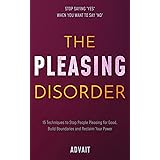According to various health organizations, a significant majority—often cited as over 70%—of individuals attempting to quit nicotine report experiencing significant fatigue and a general lack of energy. This pervasive symptom is a common challenge during the often-difficult journey of nicotine cessation. As discussed in the accompanying video, this profound tiredness is a direct consequence of your body undergoing an intensive withdrawal and detoxification process. Understanding the underlying physiological mechanisms can provide much-needed clarity and perspective for anyone navigating this crucial period.
Understanding Nicotine Withdrawal Fatigue: The Body’s Intense Process
When you cease nicotine intake, your body initiates a comprehensive detoxification effort. This biological reset places substantial physical stress on your entire system, as it works diligently to eliminate accumulated chemicals and toxins. Consequently, organs vital for cleansing, such as your liver, kidneys, and gut, are compelled to operate overtime, driving this extensive detox process. The energy demands of this cellular housecleaning significantly contribute to the overwhelming sense of fatigue experienced by many individuals.
The Body’s Detoxification Efforts During Nicotine Cessation
Nicotine, along with thousands of other harmful chemicals found in tobacco products, permeates various tissues and organ systems. Upon stopping, the body’s natural inclination is to purge these foreign substances. This rigorous detoxification involves several complex biochemical pathways. For example, the liver, which is the body’s primary filter, processes and metabolizes nicotine and its byproducts. The kidneys then work tirelessly to excrete these processed toxins through urine. Furthermore, the gut microbiome can be affected by smoking, and its rebalancing during cessation also demands considerable internal resources. This concerted effort drains the body’s energy reserves, leaving individuals feeling profoundly exhausted.
The Role of Neurotransmitter Rebalancing in Fatigue
Beyond physical detoxification, another critical factor contributing to fatigue during nicotine withdrawal is the rebalancing of neurotransmitters in the brain. Nicotine acts as a stimulant, artificially increasing levels of dopamine, acetylcholine, and other mood-regulating chemicals. When nicotine is removed, the brain must adjust to producing these neurotransmitters naturally again, a process that can take time. During this period, dopamine levels, often associated with pleasure and motivation, can dip, leading to feelings of sluggishness, anhedonia (inability to feel pleasure), and intense fatigue. The brain is effectively re-learning how to function without an external chemical crutch, a monumental task that consumes significant neural energy.
Beyond Fatigue: Other Common Nicotine Withdrawal Symptoms
While fatigue is a prominent symptom, it is typically accompanied by a spectrum of other physical and psychological effects as the body adjusts to nicotine cessation. These symptoms can collectively make the journey of quitting nicotine particularly challenging. Awareness of these additional manifestations can help individuals prepare and develop coping strategies, enhancing their prospects for successful nicotine cessation.
Psychological Symptoms of Nicotine Withdrawal
The brain’s adjustment period often manifests in various psychological ways. Common symptoms include heightened irritability and frustration, as the body struggles with the absence of its accustomed stimulant. Anxiety levels can significantly increase, sometimes leading to feelings of panic or unease. Many individuals report difficulty concentrating, finding it hard to focus on tasks that previously seemed simple. Moreover, intense cravings for nicotine are a hallmark of withdrawal, presenting a relentless mental battle. Some people also experience mood swings or even symptoms akin to depression, underscoring the profound impact of nicotine on brain chemistry.
Physical Symptoms Beyond Exhaustion
In addition to fatigue, the physical body also reacts strongly to the absence of nicotine. Headaches are a frequent complaint, ranging from mild to severe. Dizziness can occur as the cardiovascular system adjusts to changes in blood pressure and oxygen levels. Increased appetite and weight gain are also commonly observed, partly due to metabolic changes and partly due to using food as a coping mechanism. Sleep disturbances, including insomnia or restless sleep, often compound feelings of fatigue, creating a vicious cycle. Ultimately, these varied physical symptoms collectively signify the body’s extensive healing and rebalancing process.
Strategies for Managing Fatigue and Other Withdrawal Symptoms
Navigating the challenges of nicotine withdrawal, particularly the pervasive fatigue, requires a multi-faceted approach. Implementing practical strategies can significantly alleviate discomfort and improve the chances of sustained nicotine cessation. The key involves supporting your body’s natural healing mechanisms and developing effective coping strategies.
Support Your Body’s Detox Process
Providing optimal support for your body’s detoxification organs is paramount. Consequently, prioritizing hydration is crucial; drinking plenty of water assists your kidneys in flushing out toxins more efficiently. Furthermore, consuming a balanced, nutritious diet rich in fruits, vegetables, and whole grains provides essential vitamins and minerals, which are vital for cellular repair and energy production. Avoiding processed foods, excessive sugar, and caffeine (which can disrupt sleep and increase anxiety) can also ease the burden on your system.
Prioritize Rest and Sleep for Recovery
Given the intense demands placed on your body, sufficient rest becomes non-negotiable. Establishing a consistent sleep schedule and ensuring you get 7-9 hours of quality sleep each night is incredibly beneficial. Creating a relaxing bedtime routine, such as taking a warm bath or reading, can significantly improve sleep quality. Napping when fatigue becomes overwhelming is also acceptable, provided it does not interfere with nighttime sleep patterns. Granting your body adequate recovery time is essential for combating fatigue and aiding overall healing.
Embrace Gentle Movement
While intense exercise might feel daunting when experiencing fatigue, incorporating gentle physical activity can be highly advantageous. Regular, moderate exercise, such as walking, yoga, or stretching, can boost energy levels, improve mood, and aid in stress management. Physical activity also supports healthy circulation and detoxification processes. However, it is important to listen to your body and avoid overexertion, especially during the initial stages of nicotine withdrawal.
Mind-Body Connection and Stress Management
Managing the psychological aspects of withdrawal, including stress and anxiety, is vital for combating fatigue. Techniques such as deep breathing exercises, meditation, or mindfulness can help calm the nervous system and reduce feelings of overwhelm. Engaging in enjoyable hobbies or spending time with supportive friends and family can also provide mental distraction and emotional support. Addressing the mind-body connection proactively can alleviate stress, which in turn can reduce energy depletion.
The Path to Sustained Nicotine Cessation
The journey of nicotine withdrawal is undoubtedly challenging, marked by symptoms like fatigue, irritability, and intense cravings. However, it is also a testament to your body’s remarkable ability to heal and adapt. By understanding the underlying physiological processes, particularly the extensive detoxification and neurotransmitter rebalancing, you can approach these symptoms with greater awareness and patience. Implementing practical strategies such as supporting your detox, prioritizing rest, engaging in gentle movement, and managing stress will significantly enhance your experience. Remember that every day you spend free from nicotine is a step towards improved health and renewed energy, making the effort of quitting nicotine profoundly worthwhile.











